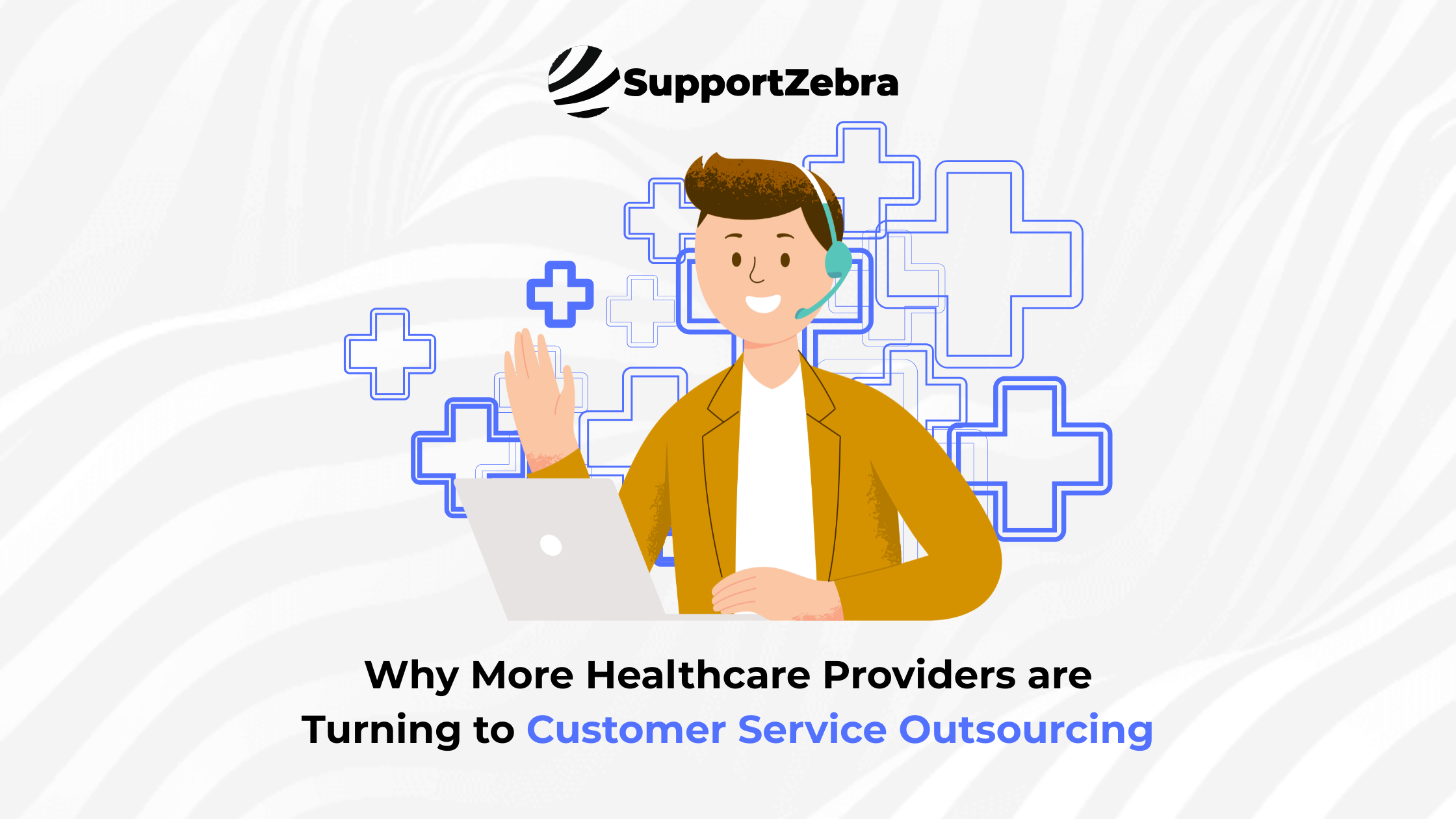Understanding the Shift Towards Outsourced Customer Service in Healthcare
- Healthcare providers are outsourcing customer service to manage growth, reduce costs, and improve patient care.
- 83% of organizations report higher patient satisfaction, and 84% achieve cost savings through outsourcing.
- Key considerations when choosing a provider include HIPAA compliance, medical knowledge, stress management, and system integration.
- SupportZebra delivers cost-effective, multilingual support that cuts labor costs by up to 50% while maintaining high-quality service.
More healthcare providers are outsourcing customer service due to the pressures of changing procedures and unexpected growth that can strain resources. A reliable customer service system is essential for these operations.
Outsourcing to specialized companies offers benefits like advanced data analytics for personalized patient care, reduced costs of in-house teams, and improved competitiveness in a fast-evolving industry.
This article explores the rising trend of outsourcing in healthcare, its advantages, and the challenges to consider.
Customer Service in the Healthcare Industry
Outsourcing customer service in healthcare involves partnering with specialists to handle tasks like patient inquiries, appointment scheduling, data management, billing, and insurance support. This approach can boost patient satisfaction, reduce costs, and facilitate organizational growth.
Delivering excellent customer service is vital for improving patient outcomes and loyalty. Focus on positive interactions, privacy, staff training, patient empowerment, and feedback response to enhance the patient experience and achieve better results for both patients and your organization.
Benefits of Customer Service Outsourcing in Healthcare
Outsourcing customer service can bring major benefits to healthcare organizations, such as improved patient satisfaction, reduced expenses, greater scalability, and access to skilled professionals. Collaborating with a knowledgeable provider can enhance patient care while easing the burden on your internal teams and improving your financial performance.
Here’s how outsourcing can help your organization succeed:
- Enhanced Patient Satisfaction
83% of healthcare organizations that outsource customer service see better patient experiences. This approach builds trust, loyalty, and positive word-of-mouth, improving patient outcomes.
- Lower Costs
Around 84% of organizations save money by outsourcing tasks that aren’t central to their mission, like billing, claims processing, and data management, allowing for more efficient use of resources.
- Greater Scalability
Outsourcing helps you handle varying workloads smoothly, maintaining quality patient care even during busy periods.
- Access to Expert Professionals
You can connect with a large pool of trained specialists without the costs associated with hiring or training in-house, providing your organization with the expertise it needs without extra pressure.
Understanding the Shift Towards Customer Service Outsourcing in Healthcare
Managing customer service in healthcare internally can lead to issues like incorrect data, staffing shortages, high costs, and difficulties in scaling. In-house teams may lack the specialized skills to address language and cultural differences, diverting focus from essential medical tasks. Outsourcing addresses these challenges by offering scalability, expert support, cost savings, and improved patient satisfaction.
Outsourcing is a strategic approach that enables healthcare providers to focus on patient care, research, and development while enhancing customer relationship management and reducing expenses. Black Book Market Research indicates that 83% of healthcare organizations report improved patient satisfaction, and 84% achieve cost savings.
Hospitals, healthcare systems, and insurance companies benefit from outsourcing by increasing efficiency and lowering costs, allowing more resources for patient care and better service options for payers.
Considerations in Choosing a Healthcare Customer Service Outsourcing Provider
Outsourcing customer service in the healthcare sector can help you handle many patient inquiries and support, especially when dealing with different time zones. By teaming up with a skilled provider, you can tap into a larger pool of professionals equipped to meet various patient needs and tackle common issues.
When selecting an outsourcing partner, there are some factors to keep in mind:
- HIPAA Compliance
Ensure they can handle protected health information (PHI) following HIPAA regulations to maintain patient trust and avoid legal issues.
- Medical Terminology Knowledge
Verify that agents are familiar with medical and legal terms for clear patient communication.
- Stress Management Training
Representatives should be trained to handle stressful situations calmly, enhancing patient relationships and satisfaction.
- Shared Objectives
Confirm alignment on delivering high-quality, patient-centered service.
- Integration with Healthcare Technology
Your partner should seamlessly integrate with your systems, ensuring accuracy and compliance.
- Cultural and Language Awareness
A diverse talent pool can better cater to patient needs and foster stronger relationships.
- Cost Efficiency
Outsourcing can reduce hiring and training costs, allowing you to focus on excellent patient care while improving efficiency.
SupportZebra as a Provider of Outsourced Customer Service
Healthcare providers are increasingly outsourcing customer service to focus on patient care and medical research, resulting in higher patient satisfaction and better cost management. This strategy helps address internal challenges like misinformation and resource limitations while providing access to skilled professionals.
At SupportZebra, we understand the importance of outsourcing customer service, especially as patient inquiries grow. Our team of skilled, English-speaking agents in the Philippines is ready to assist via calls, texts, emails, social media, and in-app messaging, ensuring quick responses on preferred channels. We offer a cost-effective solution to cut labor costs by up to 50% while maintaining high service quality.
Ready to enhance your customer support? Contact us today to improve your service.

